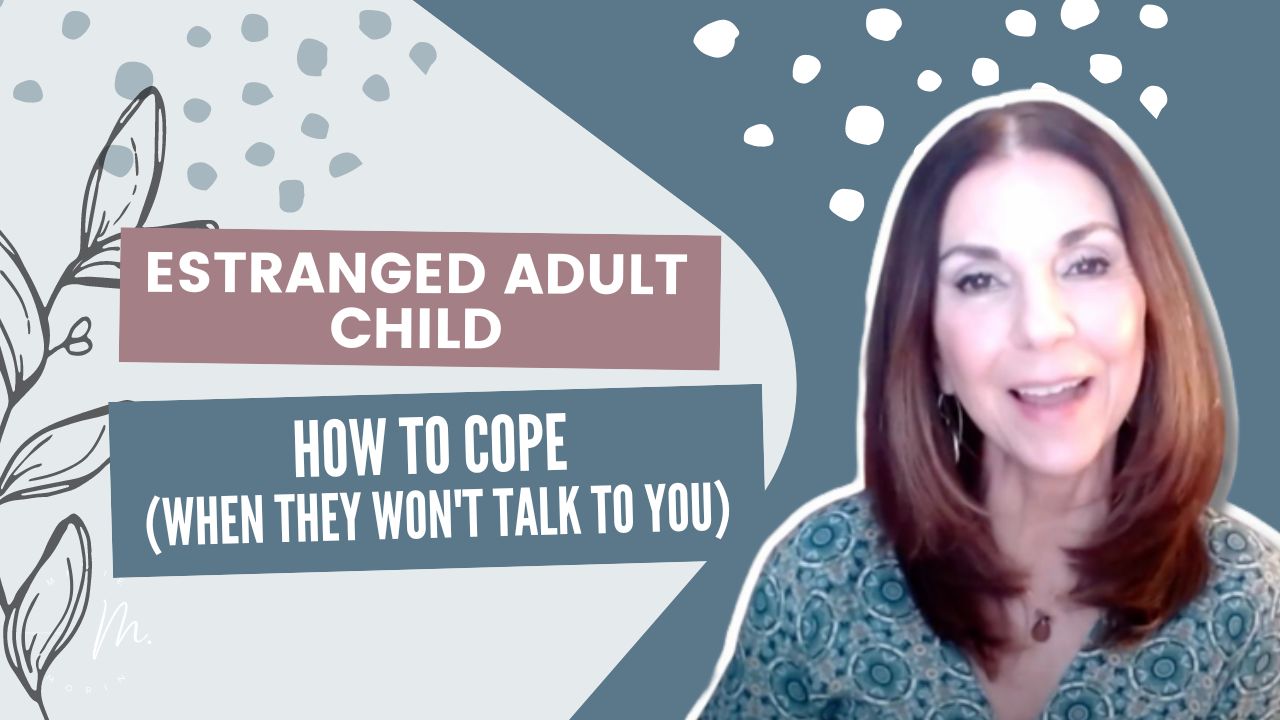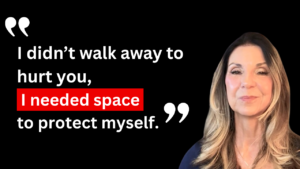Estrangement from an adult child is one of the most challenging conditions for parents. You are not alone if you are having trouble coping with the fact that your adult child won’t talk to you. At least twenty-seven percent of the United States are cut off from one or more family members.
The rejection and non-communication from your adult child creates deep emotional angst. No matter who chooses to cut-off, estranged family members experience depression, anxiety, guilt, anger, denial, and shock. Parents who hope to feel better and cope will practice daily self-care, communication techniques, and social connection. This article discusses How To Cope When Your Estranged Adult Child Won’t Talk To You.
Some parents are confused about why their adult children cut-off. Kids rarely have one reason but a constellation of catalysts and conditions. Parents can react to their adult children and facilitate increased tensions. Adult children participate in the breakdown of the relationship. However, as Joshua Coleman, author of Rules of Estrangement[1] , it is the adult children who ultimately decide if they want to reconcile.
Parents initially grieve, and in time some come to accept the condition with its ambiguous time frame. The average length of estrangement is about four and one-half years. Ideally, parents who acknowledge that they cannot control their adult children’s actions move forward. Parents begin one small step at a time to resume a new life and socialize with those who love and value them. The grieving process gives way to mindful self-care that improves their well-being. To overcome the onslaught of emotional waves, parents progress by preparing for possibilities.
Adult children often disconnect due to the discomfort of the relationship. There may have been tensions and communication problems that were unresolved. During the separation gap, parents benefit by learning communication skills. Parents who know to remain calm amid stressful interchanges relay to their adult children that they have positively changed.
How To Cope
1. Commit to a Daily Self-Care Practice
Begin your day with practices that lessen stress. You can do breathing exercises, meditation, daily movement, journaling, and prayer.
2. Learn Communication Techniques
Parents and adult children who have a history of stressed communication can benefit from learning how to listen, validate, and apologize. Adult children who believe their parents are toxic frequently point to how their parents are unwilling to apologize and need to be correct.
When parents improve their ability to listen to what their adult child is saying, they can resist being defensive. Defensiveness blocks progress and makes it difficult to move forward in a conversation. Listening, acknowledging, validating, taking responsibility, and apologizing are all essential skills to bridge the gap and mend family rifts.
3. Stay Socially Connected
Social connection and being around others who love and value you are the highest predictor of mental and physical health. Connecting with friends and family provides an opportunity for support and comfort. Also, being social means we are busy with our personal lives and step out of the role of parent.
If you have kids that still want you around, then love on them. Commit to living despite your estranged adult child’s choice. While it is excruciating to be rejected by your adult child and worse to be called toxic, your mental state depends on your ability to continue.
ESTRANGEMENT IS ONE OF THE most complex challenges a parent will face. Being cut off from our adult kids is devastating, heartbreaking, and overwhelming,
The widespread condition of estrangement is hitting families around the world. Parents believe it is a child’s duty and obligation to keep ties. On the other hand, adult children follow the individualistic principle that permits one to cut off if they don’t feel the relationship benefits them. Indeed, adult children who have been abused have good reason to cut ties to preserve themselves. Parents and adult children alike suffer from depression, anxiety, guilt, and anger when they are estranged. Many are stuck in a state of shock, focused on reconciliation with no reasonable date.
Parents benefit from self-care, communication skills, and remaining socially active to cope with the stress of estrangement. Parents can feel better by dealing with the cut-off of their adult children and shifting their focus to themselves. This article discusses How To Cope When Your Estranged Adult Child Won’t Talk To You.
Resources:
Agllias, K. (2016). Disconnection and decision-making: Adult children explain their reasons for estranging from parents. Australian Social Work, 69(1), 92-104.
Agllias, Kylie. Family Estrangement A Matter Of Perspective. New York, Routledge, 2017.
Coleman, Joshua. Rules of Estrangement. New York, Harmony Books, 2020.
Morin, Marie. Feeling Heartbroken and Alone? How to Pick Up the Pieces When You are Estranged. eBook. 2022.
Morin, M.L. [Morin Holistic Therapy]. (2022, January 4 ). What is Family Estrangement? You Are Not Alone.
Morin, M.L. [Morin Holistic Therapy]. (2021, September 8). Diaphragmatic Breathing: 5 Minute Deep Breathing Exercise for Beginners.
Morin, Marie. How to Deal with Estranged Family During the Holidays (2021, November 21) Sixty and Me. https://sixtyandme.com/estranged-family-holidays/
Pillemer, Karl. Fault Lines Fractured Families and How to Mend Them. New York Penguin Random House, 2020. https://theconversation.com/what-is-family-estrangement-a-relationship-expert-describes-the-problem-and-research-agenda-164852









